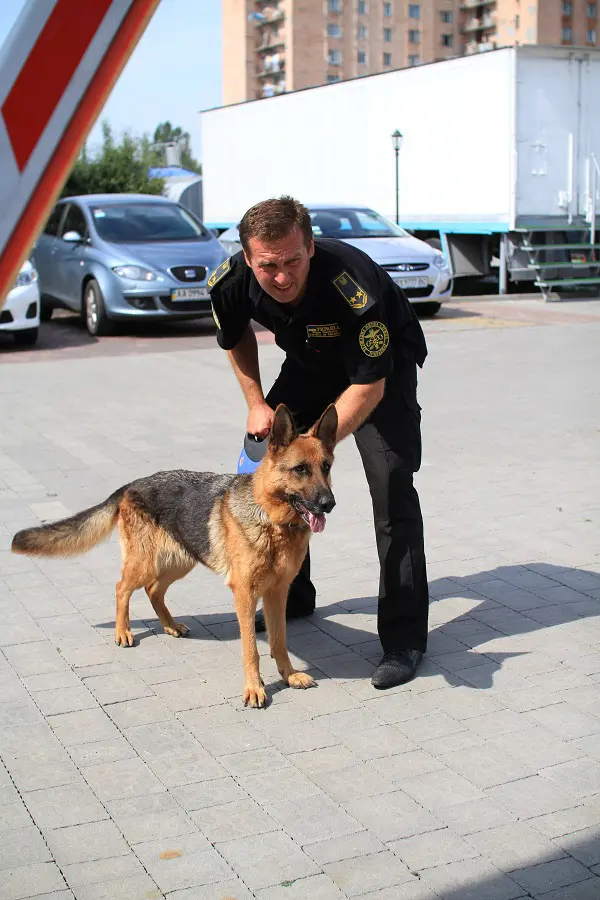
In Houston and other communities in Texas, police often utilize drug sniffing dogs — canines that have been specially trained to sniff out illegal narcotics and other substances — in their law enforcement efforts. Their use to establish probable cause for searching and detaining someone suspected of drug possession has raised a lot of legal questions in recent years. Many feel an arrest based on evidence discovered by a dog violates their Fourth Amendment protections against illegal government searches and seizures.
On this Page
Public Property: A Search By A Drug Sniffing Dog Isn’t A Search
The Supreme Court maintains that an individual has no reasonable expectation of privacy while on public property. Because of this, the Court has ruled in several cases that a sniff search conducted by a drug dog is not a search when conducted in a public place, such as an airport or on the street.
According the Supreme Court, the right to privacy does not extend to the air surrounding an automobile or personal property such as luggage. If a police officer pulls someone over and they smell marijuana smoke coming from the car, this gives the police a reasonable suspicion that there is marijuana in the car. The police officer hasn’t entered the car and a vehicle is usually on public property when stopped. It’s the same thing for a drug sniffing dog, except their sense of smell is far more sensitive than a human’s.
Private Property: A Search By A Drug Sniffing Dog Is A Search
In the case of Florida v. Jardines, police officers led a drug-sniffing police dog to the front door of the home that was suspected of being marijuana grow house. The dog alerted officers to the presence of marijuana within the house. A search warrant was issued and the homeowner was arrested.
The Court ruled that a person has a right to be free from unreasonable governmental intrusion within their own homes. Intruding on private property is in fact a search, without consent, and requires both a probable cause and a search warrant.
You Can’t Be Detained While Waiting For A Drug Sniffing Dog To Arrive
In Rodriguez v. United States, the Supreme Court ruled that extending the length of a traffic stop in order to conduct a drug sniff test of the car without reasonable suspicion or other lawful justification violates a person’s Constitutional rights against unreasonable searches and seizures.
False Alerts by Drug Sniffing Dogs
Are drug sniffing dogs always accurate? Absolutely not. A false alert is the term for a situation in which the dog alerted its handler to the smell of contraband, but a search turned up no potentially illegal substances.
In Texas, false alerts are not well documented or investigated. However, the statistics from other states and studies have show false alerts to be a serious issue.
For example, the Illinois Department of Transportation study from 2007-2009 found accuracy rates as low as 32% for police K-9 searches in which drugs or paraphernalia were actually found. In a University of California Davis study in 2011 found that detection dogs erroneously alerted more than 200 times — in particular when the handler had been led to believe that a scent would be present.
Houston Criminal Defense Lawyer Lisa Shapiro Strauss Will Protect Your Rights
If you or a family member has been charged with drug possession in Houston, you need the help of a skilled and experienced Houston drug crimes defense lawyer like Lisa Shapiro Strauss to ensure your Constitutional rights are protected.
Remember, you are innocent until proven guilty. Legal representation by former prosecutor and Houston criminal defense attorney Lisa Shapiro Strauss may mean the difference between being found guilty or innocent, or the difference between jail time and parole. Contact the law offices of Lisa Shapiro Strauss to schedule a confidential meeting to discuss your situation, how the law applies in your case and what your best legal options are.




